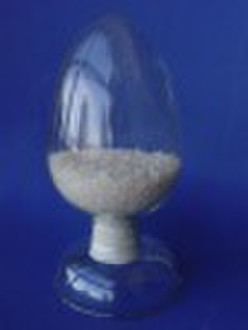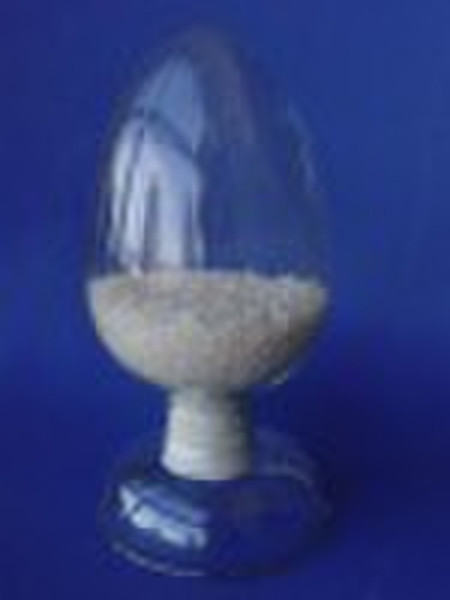硫酸铵

xiaoyan xu
联系人姓名
基本信息
| 分类 | Nitrogen Fertilizer |
|---|
Ammonium sulfate (IUPAC-recommended spelling; also ammonium sulphate in British English), (NH4)2SO4, is an inorganic salt with a number of commercial uses. The most common use is as a soil fertilizer. It contains 21% nitrogen as ammonium cations, and 24% sulfur as sulfate anions. In fertilizer the purpose of the sulfate is to reduce the soil pH. It is used largely as an artificial fertilizer for alkaline soils. In the soil the ammonium ion is released and forms a small amount of acid, lowering the pH balance of the soil , while contributing essential nitrogen for plant growth. It is also used as an agricultural spray adjuvant for water soluble insecticides, herbicides, and fungicides. There it functions to bind iron and calcium cations that are present in both well water and plant cells. It is particularly effective as an adjuvant for 2,4-D (amine), glyphosate, and glufosinate herbicides. It is also used in the preparation of other ammonium salts. In biochemistry, ammonium sulfate precipitation is a common method for purifying proteins by precipitation. As such, ammonium sulfate is also listed as an ingredient for many United States vaccines per the Center for Disease Control.[2] Ammonium sulfate is also a food additive.[3][4] A saturated solution of ammonium sulfate in heavy water (D2O) is used as an external standard in sulfur (33S) NMR spectroscopy with shift value of 0 ppm. It has also been used in flame retardant compositions acting much like Diammonium phosphate. As a flame retardant, it lowers the combustion temperature of the material, decreases maximum weight loss rates, and causes an increase in the production of residue or char.[5] In November 2009, a ban on ammonium sulfate, ammonium nitrate and calcium ammonium nitrate fertilizers was imposed in the Malakand Division - comprising the Dir, Swat, Chitral and Malakand districts of the North West Frontier Province (NWFP) of Pakistan, by the NWFP government, following reports that those chemicals were used by militants to make explosives. In January 2010, these substances were also banned in Afghanistan for the same reason.
交货条款及包装
端口: Tianjian/Nanjing
付款条款
Telegraphic transfer
-
支付方式
我们接受:









